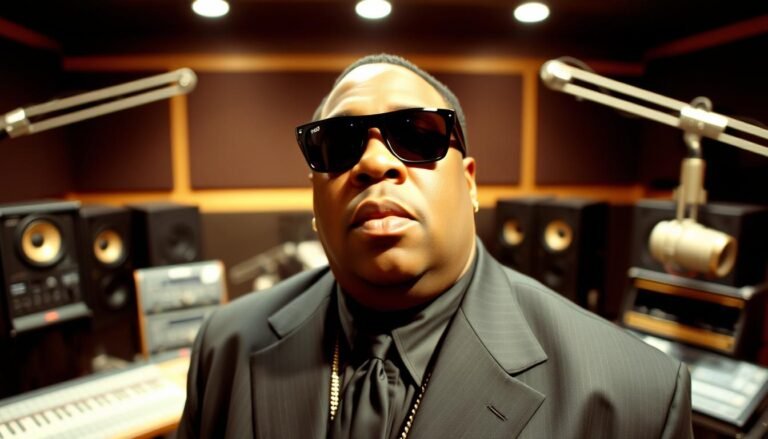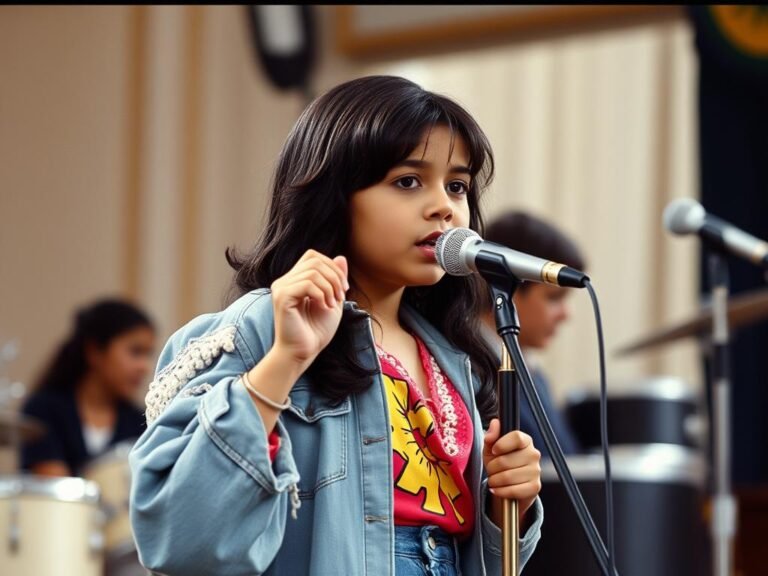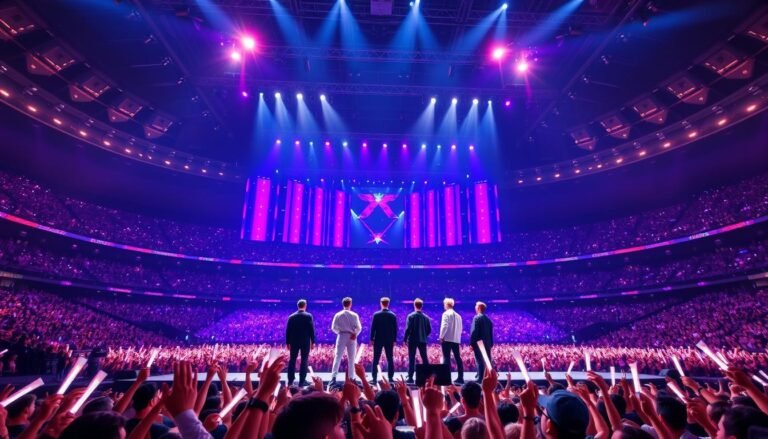Adele – The Voice of a Generation
In a music industry often dominated by fleeting trends and manufactured personas, Adele stands as a towering exception – a genuine artist whose raw emotion and extraordinary vocal talent have cemented her status as the defining voice of her generation. With her soul-stirring ballads and uncompromising authenticity, she has transcended mere popularity to become a cultural phenomenon, connecting with millions across age groups, backgrounds, and musical preferences.
What makes Adele truly exceptional isn’t just her commercial success, but her ability to articulate universal human experiences through her music. Her songs of heartbreak, resilience, and self-discovery resonate with a rare emotional honesty that feels both intensely personal and universally relatable. This article explores how a shy girl from Tottenham transformed into one of music’s most powerful voices, redefining what it means to be a pop star in the modern era.
Career Milestones: A Record-Breaking Journey
Adele’s career trajectory reads like a masterclass in artistic evolution. Her 2008 debut album, 19, introduced the world to her extraordinary voice and songwriting talent. The album’s jazz-influenced soul sound, highlighted by singles like “Chasing Pavements” and “Hometown Glory,” earned her critical acclaim and two Grammy Awards, including Best New Artist. This was merely the opening act of what would become one of music’s most remarkable careers.

It was her sophomore album, 21, that catapulted Adele into the stratosphere of superstardom. Released in 2011, the album became a global phenomenon, spending 24 weeks at number one on the Billboard 200 – the longest for any album by a female artist. Singles like “Rolling in the Deep,” “Someone Like You,” and “Set Fire to the Rain” dominated radio airwaves and broke streaming records. 21 has sold over 31 million copies worldwide, making it the best-selling album of the 21st century.
Following vocal cord surgery in 2011, Adele returned triumphantly with 25 in 2015. The album sold 3.38 million copies in its first week in the US alone – the largest single-week sales for an album since Nielsen began tracking data in 1991. The lead single “Hello” became the first song to sell over a million digital copies in a week. Her most recent album, 30, released in 2021, continued her streak of critical and commercial success, exploring themes of divorce, motherhood, and self-discovery.

Adele’s trophy cabinet speaks volumes: 15 Grammy Awards, an Academy Award, a Golden Globe, 18 Billboard Music Awards, 5 American Music Awards, and numerous Guinness World Records. Beyond these accolades, her achievement of selling over 120 million records places her among the world’s best-selling music artists of all time.
Stay Updated on Adele’s Journey
Join our community of music enthusiasts to receive exclusive updates on Adele’s upcoming projects, in-depth analysis of her music, and news about similar artists who capture the soul of a generation.
Artistic Authenticity: The Heart of Adele’s Appeal
What truly distinguishes Adele in a crowded musical landscape is her unwavering commitment to authenticity. In an era of carefully constructed public personas, her refusal to conform to industry standards feels revolutionary. “I don’t make music for eyes, I make music for ears,” she once stated, emphasizing her focus on substance over style.

Lyrical Themes: Universal Emotions Through Personal Stories
Adele’s songwriting draws deeply from her personal experiences, transforming individual moments into universal emotions. Her lyrics explore the full spectrum of human relationships – from the euphoria of new love to the devastating aftermath of heartbreak. Songs like “Someone Like You” and “Hello” capture the lingering pain of past relationships with such precision that listeners feel as though she’s articulating their own unspoken feelings.
On 30, Adele expanded her thematic range, addressing her divorce, the challenges of motherhood, and her journey toward self-acceptance. “Easy On Me” speaks to the vulnerability of asking for understanding during personal transformation, while “My Little Love” incorporates voice notes with her son, creating an intimate portrait of maternal guilt and reassurance.
“I’m not having these people I don’t know take my legacy, my story away from me, and decide what I can leave behind or what I can take with me.”
Vocal Style: A Technical Marvel with Emotional Depth
Adele’s voice is a technical marvel that combines power, control, and emotional expressiveness. While not possessing the widest range (spanning about three octaves), her masterful manipulation of timbre and color allows her to convey complex emotions with remarkable precision. Music experts classify her as a lyric mezzo-soprano, noting her warm, rich tone and ability to move seamlessly between chest and head voice.

What sets her apart is not just technical ability but her intuitive understanding of emotional delivery. She can shift from a vulnerable whisper to a powerful belt within a single phrase, using vocal techniques to underscore the emotional narrative of her lyrics. Her signature vocal ornamentations – the slight rasp, the controlled vibrato, the perfectly timed breaks in her voice – all serve the emotional truth of the song.
Signature Albums
- 19 (2008): Her jazz-influenced debut exploring young love
- 21 (2011): The breakup album that defined a generation
- 25 (2015): Reflections on time and reconciliation
- 30 (2021): A divorce album about self-discovery and motherhood
Iconic Songs
- Someone Like You: The heartbreak anthem that moved millions to tears
- Rolling in the Deep: A defiant declaration of emotional survival
- Hello: A poignant exploration of reconnection and closure
- Easy On Me: A plea for understanding during personal transformation
Cultural Influence: Bridging Generations and Demographics
Adele’s music possesses a rare quality – the ability to appeal across generational divides. Her sound, rooted in classic soul and influenced by artists like Ella Fitzgerald and Etta James, resonates with older listeners who appreciate its connection to musical traditions. Simultaneously, her emotional honesty and contemporary production attract younger audiences seeking authenticity in an often artificial pop landscape.

“Hello” exemplifies this cross-generational appeal. The song’s themes of reconciliation and nostalgia speak to universal human experiences, while its production balances classic songwriting with contemporary elements. The music video, which garnered 27.7 million views in its first 24 hours, became a cultural touchstone that transcended age and demographic boundaries.
“Someone Like You” similarly captured the cultural zeitgeist, becoming the soundtrack to countless emotional moments in film, television, and real life. Its raw portrayal of post-breakup grief resonated so deeply that it inspired a Saturday Night Live sketch about its ability to reduce listeners to tears. The song’s performance at the 2011 BRIT Awards, featuring just Adele and a piano, became one of the most memorable live television moments of the decade.

Beyond music, Adele has influenced contemporary culture in profound ways. Her embrace of her natural appearance challenged industry beauty standards and inspired conversations about body positivity. Her decision to largely avoid social media and maintain privacy around her personal life has provided a counterpoint to the oversharing that characterizes much of modern celebrity culture.
Personal Journey: Vulnerability as Strength
Adele’s personal journey has been as compelling as her musical one, marked by periods of transformation and introspection. After the whirlwind success of 21 and 25, she retreated from the public eye for nearly six years – a virtual eternity in the fast-paced music industry. This hiatus, punctuated by her divorce from Simon Konecki in 2019, became a period of profound personal growth that would inform her later work.

Her physical transformation, which resulted in significant weight loss, became a subject of public fascination. Yet true to form, Adele approached this change on her own terms, refusing to monetize or sensationalize her journey. “My body’s been objectified my entire career,” she told Vogue in 2021. “It’s not my job to validate how people feel about their bodies.”
What makes Adele’s personal evolution so impactful is her willingness to share her vulnerabilities. On 30, she included voice notes recorded during anxiety attacks, raw conversations with her son about her divorce, and unflinching examinations of her own mistakes. This radical transparency created an even deeper connection with her audience, who recognized in her struggles their own experiences with mental health, parenthood, and personal reinvention.

Throughout her career, Adele has maintained a delicate balance between public performance and private life. Her decision to largely avoid social media and limit her public appearances has preserved a sense of mystery that feels increasingly rare in contemporary celebrity culture. This careful curation of her public persona has allowed her music to remain the primary focus of her relationship with her audience.
Legacy: Redefining Pop Music for a Generation
As we assess Adele’s impact on contemporary music, her legacy already appears secure. In an industry increasingly dominated by streaming algorithms and viral moments, she has proven that emotional authenticity and vocal excellence can still capture the global imagination. Her success has created space for other artists who prioritize substance over spectacle.

Adele has redefined what it means to be a pop star in the modern era. She has achieved unprecedented commercial success while refusing to follow conventional industry playbooks. She doesn’t release music videos for every single, rarely does endorsements, and tours sparingly. Her albums arrive at her own pace – often with years between releases – yet each becomes an immediate cultural event.
Her influence extends beyond her own discography. The “Adele effect” has encouraged the industry to invest in artists with distinctive voices and authentic perspectives. Her success has demonstrated that audiences hunger for emotional connection in an increasingly digital world, and that songs exploring complex human emotions can resonate as powerfully as dance floor anthems.

Perhaps most significantly, Adele has demonstrated the enduring power of the album as an art form. In an era of singles and playlists, her carefully crafted collections of songs tell cohesive emotional stories that reward complete listening experiences. Each album captures a specific period in her life, creating a musical autobiography that chronicles her evolution as both artist and person.
As she continues her musical journey, Adele remains the voice of a generation – not because she speaks for everyone, but because she speaks with such honesty about her own experiences that listeners recognize universal truths in her personal stories. Her legacy lies in this remarkable ability to transform individual emotion into collective catharsis, creating music that feels both intimately personal and universally relevant.
Share Your Adele Story
Has Adele’s music been the soundtrack to important moments in your life? Join our community of music lovers to share your experiences and connect with others who have been touched by the voice of a generation.
Adele’s journey from a young singer-songwriter from North London to the voice of a generation represents one of music’s most remarkable stories. Through her extraordinary vocal talent, emotional authenticity, and unwavering artistic integrity, she has created a body of work that resonates across generations and cultural boundaries.
As she continues to evolve as an artist and person, one thing remains constant: Adele’s ability to articulate universal human experiences through her music. In a world of fleeting trends and manufactured personas, her commitment to emotional truth has established her not just as a commercial phenomenon, but as an artist whose work will endure for generations to come. In the final analysis, Adele isn’t just the voice of her generation – she’s a voice for anyone who has ever loved, lost, or sought to understand themselves more deeply through the transformative power of music.





